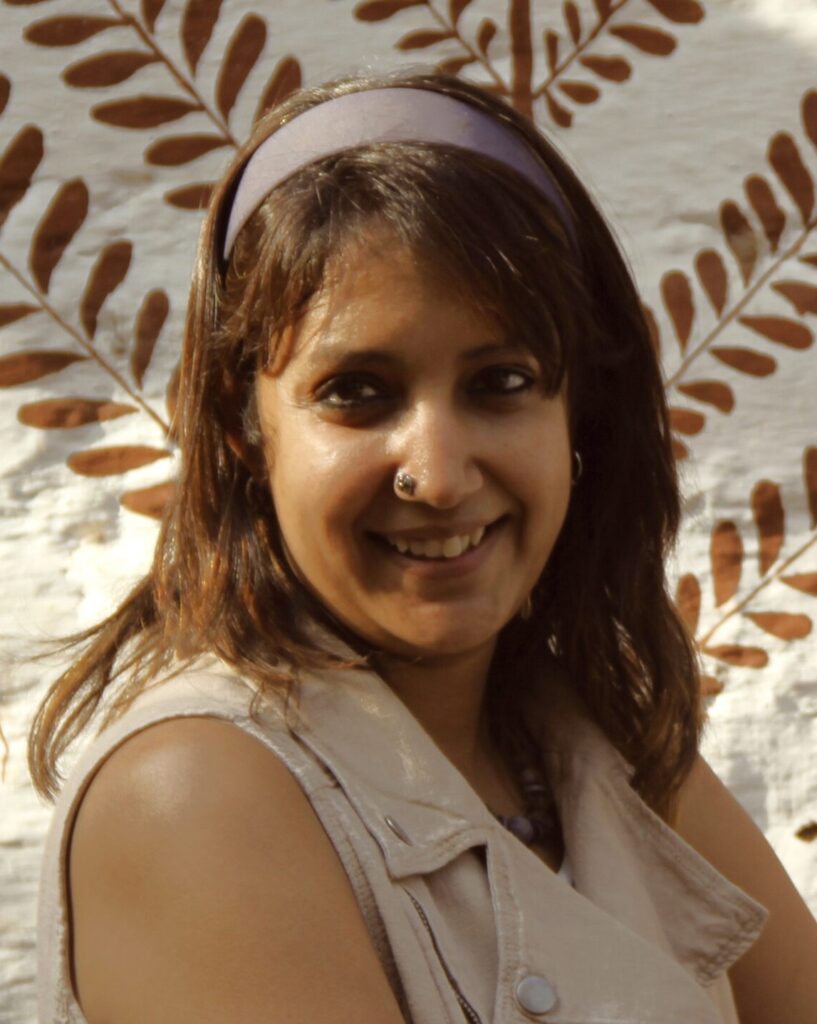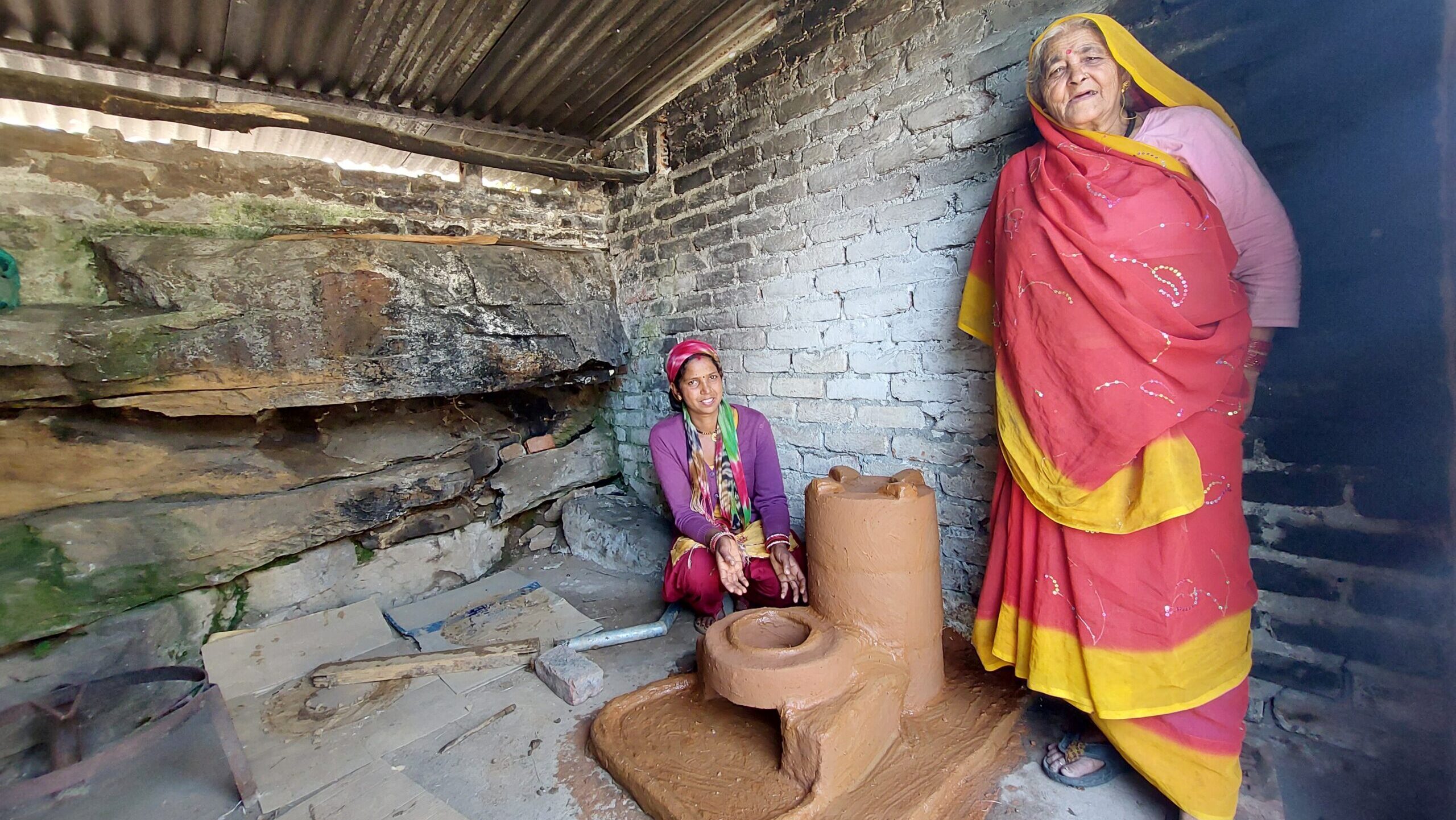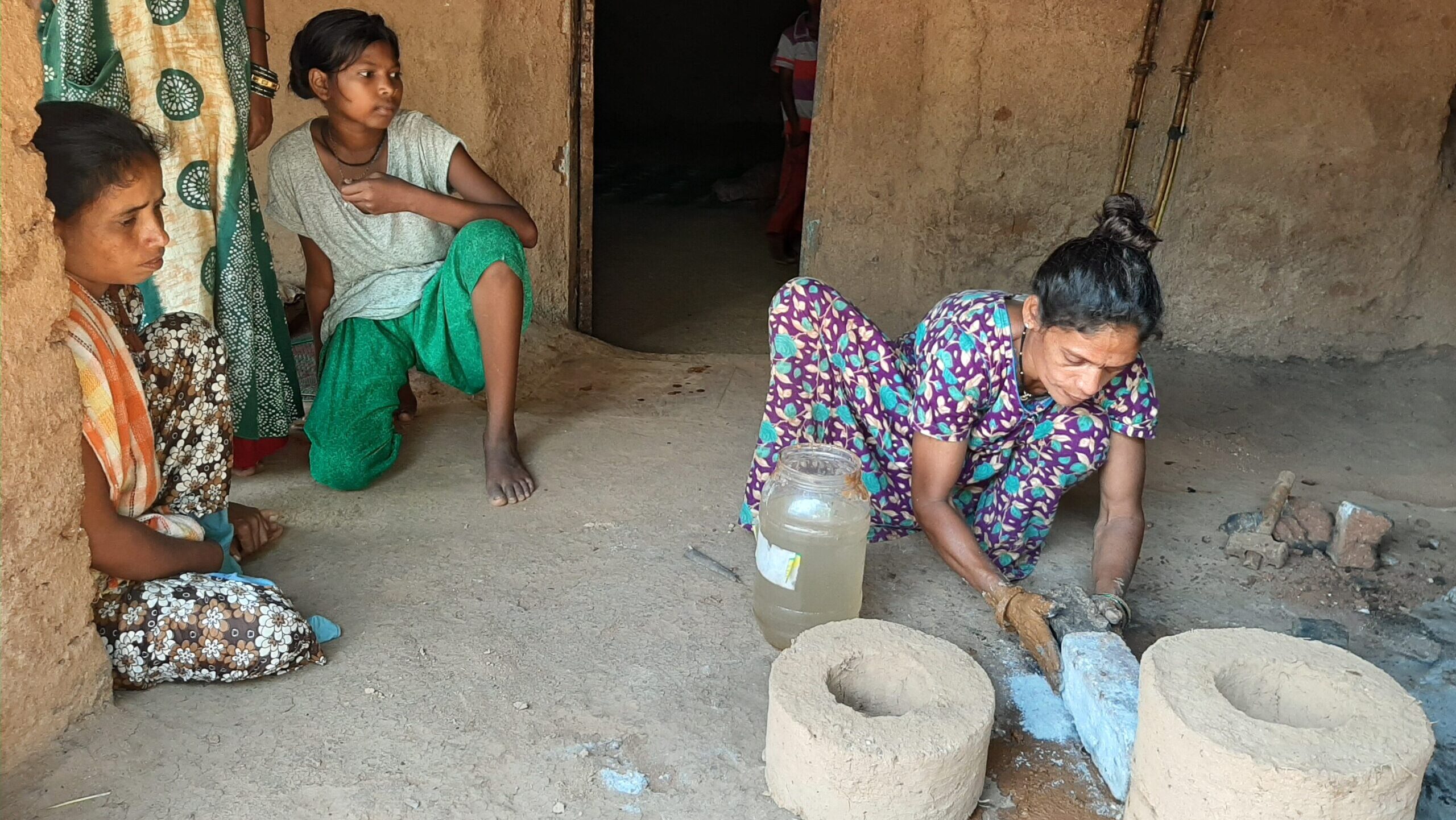An Outsider Becomes a Clean Cooking Leader in India
 Nitisha Agrawal is the Founder and Director of the Smokeless Cookstove Foundation, an organization that works with marginalized communities across India, teaching them how to make zero-cost, mud-based, improved cookstoves.
Nitisha Agrawal is the Founder and Director of the Smokeless Cookstove Foundation, an organization that works with marginalized communities across India, teaching them how to make zero-cost, mud-based, improved cookstoves.
The Clean Cooking Alliance (CCA) spoke to Agrawal about her experience participating in the Women in Clean Cooking mentorship program and its impact on her work.
This story is part of a series showcasing women leaders in the clean cooking sector.
Clean Cooking Alliance (CCA): What inspired you to work in clean cooking and set up your non-profit organization?
Nitisha Agrawal (Agrawal): My life’s mantra has been, “Paths open up when we take the first few steps.” It has guided me to where I am today.
As a marketing communications professional with several years of corporate experience, I had no idea about clean cooking or anything related to the field. However, despite having a very fortunate and successful career, I felt exhausted and noticed that my intellectual growth had paused. I knew I needed to change the way I looked at life and discover what I wanted to do with each day.
As someone who loves the outdoors, I took a break to consider what I could do next. It was during this time that the idea of Smokeless Cookstove Foundation (SCF) was born.
My love for the mountains and outdoor adventures led me to a chance interaction with an Australian eco innovator, Russell Collins, Founder of the Himalayan Rocket Stove (HRS). He was experimenting with clay as a material for his stoves in Ladakh, India, because he couldn’t procure the high-tech materials needed to make his commercial stoves work.
He devised a way of using clay that changed its nature from heat absorbent to heat repellant. Based on this experiment, I took the innovative design to the field as a test case and that’s when we realized that we had stumbled upon a simple and incredibly affordable way to make smokeless cookstoves.
I was so inspired and motivated with this field feedback that I immediately knew that this was what I had to dedicate my work in the coming years to. Decision to quit my corporate life and set up SCF to work with communities became quite clear then. And thus, I began my experiments with clay, firewood, fire, and all things grassroots. After six years, I have to say that I feel I am exactly where I was destined to be.
SCF works with rural communities in India to teach them the design principles based on Rocket Stove Technology and skills for making zero to low-cost improved mud cookstoves. Sometimes, SCF provides these services directly, and sometimes we collaborate with a grassroots or community-based organization. As part of the initial training, SCF identifies potential community trainers who can go on to become master trainers and take the model forward. SCF then steps into a supervisory, monitoring, and hand-holding role.

CCA: What are the biggest roadblocks or obstacles to innovating and improving clean cooking technologies?
Agrawal: Clean cooking change is a complex, dynamic, non-uniform, and hugely cultural phenomenon. Cultural, socio-economic, and behavioral patterns are often not sensitively studied or acknowledged before initiating an intervention. Understanding user behavior and local cooking practices is critical for any transition. Even though technology-based clean cooking solutions have improved, there’s still a gap between bringing these solutions to users through suitable designs and manageable finances.
For clean cooking interventions to be truly successful, they must also link to livelihood opportunities for the user. The role of community-based organizations is often overlooked, as grassroots connections are not considered important enough. But this is far from true, as trust in the product plays a significant role in user acceptance and subsequent sustainability.
CCA: Why are women central to increasing clean cooking access?
Agrawal: Women are at the center of household energy consumption. They motivate other women to choose better by leading through example. The willingness to choose a clean cookstove becomes more aspirational when women see other women talking about it and using it in their kitchens. The added advantage of a woman having created or improved the cookstove strengthens their belief in the product.
If women are not involved in the decision-making processes for clean energy, it will have limited use. This will impact the product’s acceptability and, eventually, lead to a loss of faith in any other improved technology presented to the community. This is often true for clean cooking programs where women are not involved in choosing the cookstove best suited for them.
Women need to be represented more in the technology development and program design of clean energy access, which impacts the overall efficacy of the intervention. If more women are involved in developing solutions, consumer testing, and feedback, the gap between solution development and its sustainable adoption can be vastly reduced.
[ Read past entries in CCA’s Women Energizing Change Series. ]
CCA: As someone with no prior clean cooking or grassroots work experience, how did you navigate challenges?
Agrawal: When I started SCF in 2016, I did not have a roadmap for this work. I was unaware of the gravity and overwhelming complexity of “lack of clean cooking” as a problem. After six years of setting up the foundation and working across 13 Indian states, amongst many partner communities, I feel more committed to expanding my work.
Even though I feel challenged because I am an outsider in the sector, it gives me an unbiased perspective and the ability to take risks.
Consistent access to finance has been my biggest obstacle. I have tried to keep my organizational overheads as lean as possible, but avenues for funding for a small NGO are very limited. At the same time, project timelines are dynamic in this sector because the complexity of working with diversified communities poses challenges. Many funders and project developers are looking for short-term impacts, carbon credits oriented results year on year but are unwilling to support the transition process for a mid to long term horizon. But as an entrepreneur and a facilitator for clean energy transitions, my primary commitment is to the end user. I often find myself in difficult situations with funders as I am unwilling to compromise on the user journey.

CCA: What motivated you to participate in the Women in Clean Cooking (WICC) program?
Agrawal: There is no other platform like WICC, and it is much needed in this sector. Finding a group of women trying to work towards a similar objective in their home ground, some leading by example and some learning the ropes, felt like a homecoming for me. I knew I had to apply.
The opportunity to connect, network, learn, and aspire to potential collaboration from the cohort was a significant motivating factor.
The program helped me realign my commitment to clean cooking. My mentor helped me view things objectively and made me believe in my ability as not just a practitioner in this space but as a potential leader and influencer.
Since the program ended, I have been doing independent projects through my NGO or as a consultant in carbon offsets-based projects. This journey has been exciting, and I can understand the various financial opportunities available to expand clean cooking projects for more households.
CCA: Having participated in the program as a mentee and mentor, what advice would you give future women considering participating in the WICC program?
Agrawal: I genuinely believe that the WICC program is a unique and powerful platform that allows women to come forward, share, and learn from each other’s experiences facing one of our most critical global problems. Any and every conversation on this can contribute to taking either small or sometimes massive steps toward solving this issue. Women at the center of the issue must form a global collective with a powerful resolve to overcome this issue that affects the poor, the marginalized, and the world at large due to its environmental impact. This is a most urgent call to all women indirectly or directly involved in clean energy or the clean cooking access value chain to apply for the WICC program.
CCA: What do you consider to be your most significant achievement?
Agrawal: Setting up the Smokeless Cookstove Foundation has been my most precious professional and personal achievement. It’s my soul’s work. SCF is not just about solutions in clean cooking but understanding the overall energy struggle faced by India’s rural and marginalized communities.
I have had the chance to work across 13 Indian states and hundreds of villages, sharing moments and meals with these families, sleeping in their homes, sometimes in deep remote forests and mountains, and always finding the light to move forward. I would consider this my achievement, or rather a collection of precious and unparalleled experiences that have made my life much richer and more meaningful.
The biggest treasure I amass as I work from village to village is the connection I form with people and become a small part of their kitchen and sometimes their life. It gives me strength and motivation to keep pushing through my journey despite obstacles.
